What is Digital Marketing? | Why is digital marketing important?
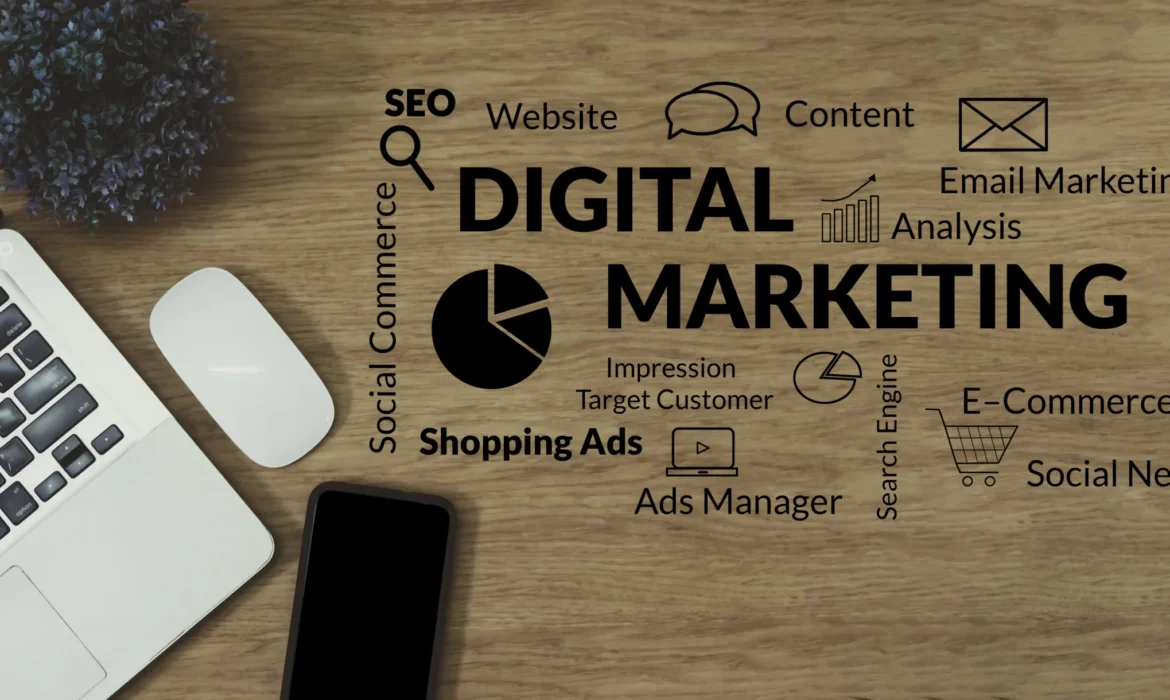
Digital marketing encompasses all marketing efforts that utilize electronic devices or the internet. It’s the promotion of products, services, or brands through various online channels. From social media and email campaigns to search engine optimization (SEO) and content marketing, digital marketing strategies aim to connect with potential customers where they spend much of their time: online.
What you’ll learn in this guide:
- What is digital marketing?
- Inbound marketing versus digital marketing
- Why is digital marketing important?
- B2B versus B2C digital marketing
- Types of digital marketing
- Search engine optimization
- Content marketing
- Social media marketing
- Pay-per-click marketing
- Affiliate marketing
- Native advertising
- Influencer marketing
- Marketing automation
- Email marketing
- Mobile marketing
- How to create a digital marketing strategy
- Digital marketing creates growth
What is Digital Marketing?
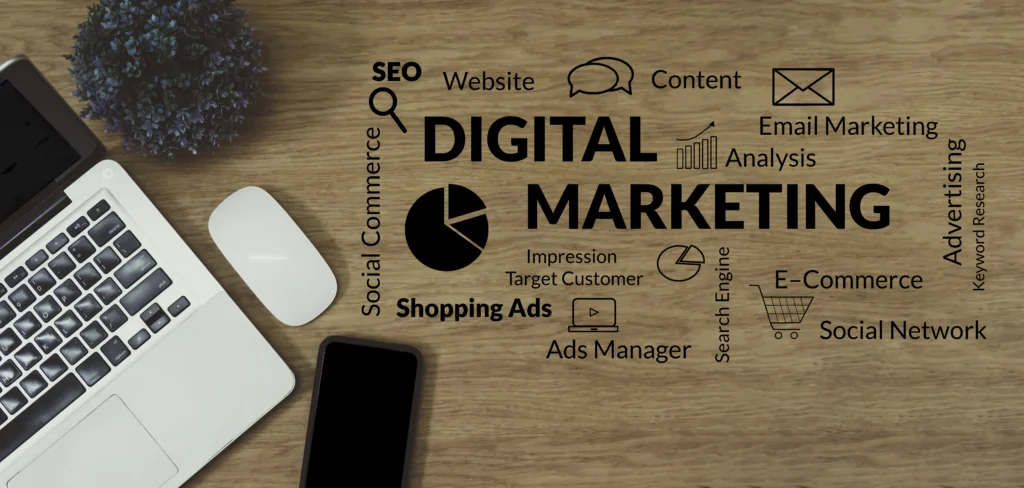
Digital marketing is a multifaceted approach to promoting products, services, or brands using electronic devices and online platforms. It encompasses a wide array of strategies and techniques aimed at reaching and engaging target audiences in the digital realm.
Here’s a more detailed exploration:
- Definition: At its core, digital marketing involves leveraging digital channels such as websites, social media, search engines, email, and mobile apps to connect with current and potential customers. Unlike traditional marketing methods that rely on print ads, billboards, or television commercials, digital marketing leverages the power of the internet to deliver targeted messages and content to specific audiences.
- Key Components: Digital marketing comprises various components, each serving a unique purpose in reaching and engaging with audiences. These components include search engine optimization (SEO), content marketing, social media marketing, email marketing, pay-per-click advertising, affiliate marketing, influencer marketing, and more. By strategically combining these components, businesses can create comprehensive digital marketing campaigns tailored to their specific goals and target demographics.
- Omni-channel Approach: One of the defining characteristics of digital marketing is its omni-channel nature, meaning that businesses can connect with consumers across multiple digital touchpoints. Whether it’s through a website, social media platform, email, or mobile app, digital marketing allows businesses to maintain a consistent presence and message across various channels, enhancing brand visibility and engagement.
- Data-Driven Insights: One of the most significant advantages of digital marketing is its ability to provide real-time data and insights into campaign performance. Through analytics tools and tracking mechanisms, businesses can monitor metrics such as website traffic, click-through rates, conversion rates, and customer engagement levels. This data-driven approach enables businesses to measure the effectiveness of their marketing efforts and make informed decisions to optimize future campaigns.
- Personalization and Targeting: Digital marketing enables highly targeted and personalized communication with consumers based on their demographics, interests, and online behavior. By segmenting audiences and delivering relevant content and offers, businesses can increase the likelihood of engagement and conversion. Whether through email segmentation, social media targeting, or personalized website content, digital marketing allows businesses to tailor their messages to specific audience segments for maximum impact.
- Continuous Evolution: Digital marketing is a dynamic and evolving field, constantly adapting to changes in technology, consumer behavior, and market trends. As new platforms emerge, algorithms evolve, and consumer preferences shift, digital marketers must stay agile and responsive to remain effective. This requires ongoing learning, experimentation, and adaptation to ensure that digital marketing strategies remain relevant and impactful in an ever-changing digital landscape.
In essence, digital marketing represents a paradigm shift in how businesses connect with consumers in the digital age. By embracing the diverse array of digital channels and employing strategic tactics tailored to their audience’s preferences, businesses can leverage the power of digital marketing to drive growth, foster brand loyalty, and achieve their marketing objectives.
Inbound Marketing versus Digital Marketing
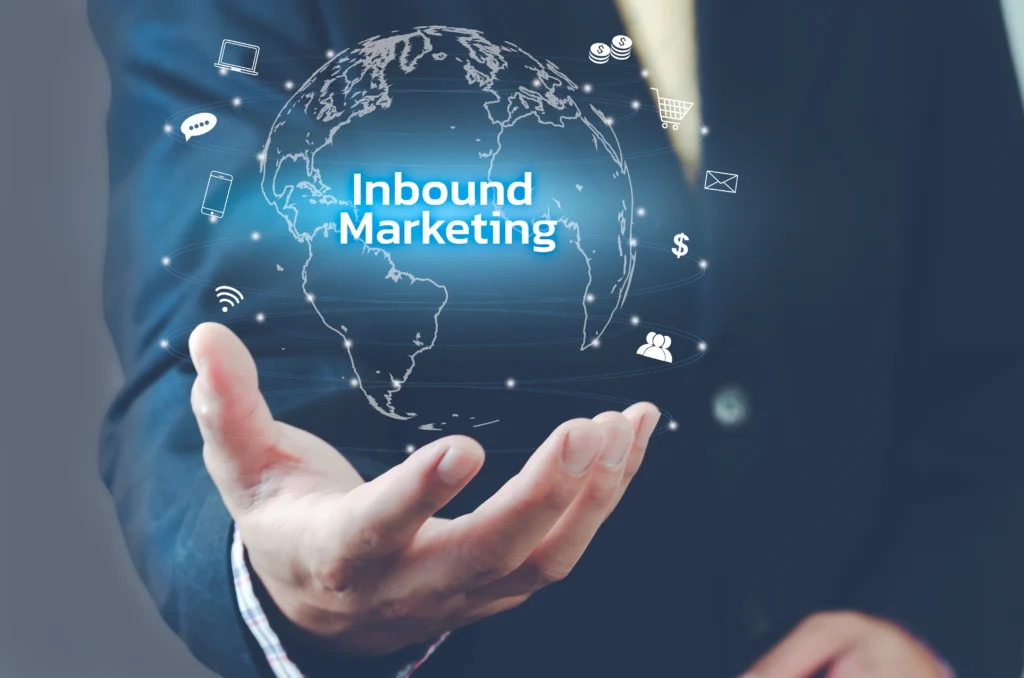
Understanding the distinction between inbound marketing and digital marketing is crucial for devising effective marketing strategies.
Let’s delve deeper into their differences and how they complement each other:
- Definition of Inbound Marketing: Inbound marketing is a customer-centric approach focused on attracting, engaging, and delighting audiences by providing valuable content and experiences tailored to their needs and interests. It emphasizes building long-term relationships with customers by offering solutions to their problems and addressing their pain points.
- Core Principles of Inbound Marketing: At the heart of inbound marketing are the principles of providing relevant and helpful content, optimizing the customer experience, and earning the trust and loyalty of consumers. Rather than interrupting consumers with intrusive advertisements, inbound marketing seeks to pull them in by offering valuable resources, educational content, and personalized experiences.
- Digital Marketing as a Broad Spectrum: Digital marketing, on the other hand, encompasses a broader spectrum of marketing activities that utilize digital channels and technologies to promote products or services. While inbound marketing is a subset of digital marketing, digital marketing includes a wide range of tactics beyond content-focused strategies.
- Scope of Digital Marketing: Digital marketing encompasses not only inbound tactics like content marketing and email nurturing but also outbound tactics such as pay-per-click advertising, display advertising, and social media advertising. It involves leveraging various digital channels to reach and engage audiences, irrespective of whether the approach is inbound or outbound in nature.
- Synergy between Inbound and Digital Marketing: While inbound marketing and digital marketing are distinct concepts, they are not mutually exclusive. In fact, they often complement each other synergistically within comprehensive marketing strategies. Inbound marketing tactics such as content creation and SEO can serve as foundational elements within a broader digital marketing framework, driving organic traffic and supporting other digital initiatives.
- Integrated Approach for Optimal Results: To maximize the effectiveness of marketing efforts, businesses often adopt an integrated approach that combines both inbound and outbound strategies within their digital marketing mix. By blending the principles of inbound marketing with the broader reach of digital marketing channels, businesses can create holistic campaigns that attract, engage, and convert leads effectively.
- Measuring Success and ROI: Both inbound and digital marketing strategies emphasize the importance of measuring success and return on investment (ROI). Through analytics tools and key performance indicators (KPIs), businesses can track the performance of their marketing efforts, whether they’re focused on inbound tactics like lead generation and nurturing or broader digital marketing initiatives such as paid advertising and social media campaigns.
In summary, while inbound marketing and digital marketing represent distinct approaches to engaging audiences in the digital landscape, they are interconnected elements of comprehensive marketing strategies. By understanding their differences and leveraging their respective strengths, businesses can create integrated marketing campaigns that deliver value, drive engagement, and ultimately, achieve their business objectives.
Why is Digital Marketing Important?

Understanding the significance of digital marketing is essential for businesses aiming to thrive in today’s increasingly digital landscape.
Let’s explore the multifaceted reasons why digital marketing holds such paramount importance:
- Reach a Wider Audience: Digital marketing enables businesses to transcend geographical boundaries and connect with audiences worldwide. Unlike traditional marketing methods that are often limited by location or distribution channels, digital marketing leverages the power of the internet to reach potential customers wherever they are, expanding the reach and scope of marketing campaigns exponentially.
- Cost-Effectiveness: Compared to traditional marketing channels such as print, television, or radio advertising, digital marketing offers a more cost-effective alternative. Digital marketing tactics like email marketing, social media advertising, and content creation can often be implemented at a fraction of the cost of traditional advertising methods, making it accessible to businesses of all sizes, including startups and small enterprises.
- Targeted Advertising: Digital marketing allows for precise targeting and segmentation of audiences based on demographics, interests, behavior, and other relevant criteria. By leveraging data analytics and audience insights, businesses can tailor their marketing messages and content to specific audience segments, increasing the relevance and effectiveness of their campaigns and minimizing wasted ad spend on uninterested audiences.
- Measurable Results: Unlike traditional marketing efforts that can be challenging to track and measure, digital marketing provides robust analytics tools and metrics for monitoring campaign performance in real-time. From website traffic and engagement metrics to conversion rates and ROI, digital marketers can access a wealth of data to evaluate the effectiveness of their marketing efforts and make data-driven decisions to optimize future campaigns.
- Enhanced Customer Engagement: Digital marketing offers numerous channels for engaging with customers in meaningful ways, fostering two-way communication and building relationships. Whether through social media interactions, personalized email campaigns, or interactive website content, businesses can engage with customers on a deeper level, soliciting feedback, addressing concerns, and providing value-added experiences that enhance brand loyalty and advocacy.
- Adaptability and Agility: In a rapidly evolving digital landscape, businesses must stay agile and adaptable to remain competitive. Digital marketing provides the flexibility to experiment with different strategies, tactics, and messaging in real-time, allowing businesses to quickly pivot and adjust their approach based on changing market dynamics, consumer behavior, or emerging trends.
- Leveling the Playing Field: Digital marketing levels the playing field for businesses of all sizes, enabling startups and small enterprises to compete with larger, more established brands on a more equal footing. With digital marketing tactics like search engine optimization (SEO), content marketing, and social media, businesses can increase their online visibility, build brand awareness, and capture market share without the need for extensive marketing budgets or resources.
- Driving Business Growth: Ultimately, the overarching goal of digital marketing is to drive business growth by attracting, engaging, and converting leads into customers. By leveraging the power of digital channels and implementing strategic marketing initiatives, businesses can increase sales, expand their customer base, and achieve sustainable growth in today’s digital economy.
In summary, digital marketing is indispensable for businesses looking to thrive in the digital age. From reaching a wider audience and driving cost-effective campaigns to fostering customer engagement and driving business growth, the importance of digital marketing cannot be overstated. By embracing digital marketing strategies and leveraging the latest technologies and trends, businesses can stay ahead of the curve and capitalize on the vast opportunities presented by the digital landscape.
B2B versus B2C Digital Marketing
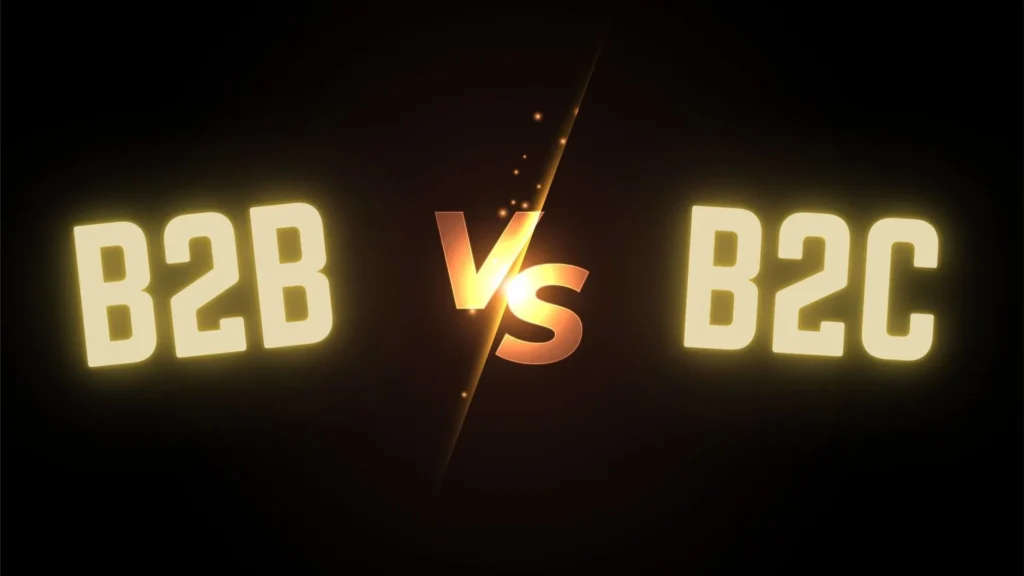
Understanding the nuances between business-to-business (B2B) and business-to-consumer (B2C) digital marketing is crucial for tailoring strategies that resonate with each target audience.
Let’s delve deeper into the differences and similarities between B2B and B2C digital marketing:
- Target Audience: The primary distinction between B2B and B2C digital marketing lies in the target audience. B2B marketing targets businesses and professionals who make purchasing decisions on behalf of their organizations, while B2C marketing targets individual consumers. As a result, the messaging, content, and tactics employed in each approach are tailored to the specific needs, preferences, and pain points of their respective audiences.
- Complexity of Decision-Making: In B2B marketing, the decision-making process is typically more complex and involves multiple stakeholders within an organization. Purchases are often driven by factors such as return on investment (ROI), cost-effectiveness, scalability, and alignment with business objectives. B2B marketers must focus on providing in-depth information, case studies, and demonstrations to address the concerns and objections of various decision-makers involved in the buying process.
- Emotional versus Rational Appeal: B2C marketing often relies on emotional appeals to resonate with individual consumers and drive purchase decisions. Marketing messages are designed to evoke emotions such as joy, excitement, or fear to create a connection with consumers and prompt action. In contrast, B2B marketing tends to focus more on rational appeals, emphasizing the practical benefits, features, and value proposition of products or services to address the specific needs and challenges faced by businesses.
- Content and Messaging: B2B content tends to be more informative, educational, and data-driven, catering to the informational needs of businesses seeking solutions to complex problems or challenges. B2B marketers may utilize whitepapers, case studies, webinars, and thought leadership content to establish credibility and demonstrate expertise in their respective industries. On the other hand, B2C content is often more visually appealing, entertaining, and lifestyle-focused, aiming to capture the attention and interest of consumers through compelling storytelling and imagery.
- Sales Cycle Length: The sales cycle in B2B marketing is typically longer and involves multiple touchpoints before a purchase decision is made. B2B transactions may require extensive research, evaluation, and negotiations, particularly for high-value or complex solutions. In contrast, B2C sales cycles are often shorter and more impulsive, with consumers making purchase decisions based on immediate needs, preferences, or desires.
- Channel Selection: B2B and B2C marketers may prioritize different digital channels based on the preferences and behavior of their target audiences. B2B marketing efforts often focus on professional networking platforms like LinkedIn, industry-specific forums, and content-driven channels such as blogs and webinars. B2C marketers, meanwhile, may prioritize social media platforms like Instagram, Facebook, and TikTok, as well as e-commerce platforms and mobile apps to reach and engage with consumers where they spend their time online.
- Relationship Building: B2B marketing places a strong emphasis on building long-term relationships with clients and fostering trust and credibility over time. B2B marketers may engage in personalized outreach, relationship nurturing, and account-based marketing strategies to cultivate lasting partnerships with key decision-makers and stakeholders. In contrast, B2C marketing often focuses on transactional relationships, with consumers making individual purchase decisions based on immediate needs or preferences, rather than long-term business relationships.
In summary, while B2B and B2C digital marketing share common principles and tactics, they differ significantly in their target audience, messaging, content, sales cycle, and relationship-building strategies. By understanding these differences and tailoring their approaches accordingly, marketers can develop effective digital marketing strategies that resonate with their target audience and drive meaningful results in both B2B and B2C contexts.
Types of Digital Marketing

Digital marketing encompasses a diverse range of strategies and tactics to engage audiences and drive conversions.
H3-Some key types include:
- Search Engine Optimization (SEO): Optimizing website content to rank higher in search engine results pages (SERPs) and increase organic traffic.
- Content Marketing: Creating and distributing valuable, relevant content to attract and retain a target audience.
- Social Media Marketing: Leveraging social media platforms to connect with audiences, build brand awareness, and drive engagement.
- Pay-Per-Click Marketing: Placing ads on search engines or social media platforms and paying only when users click on them.
- Affiliate Marketing: Partnering with affiliates who promote products or services in exchange for a commission on sales generated through their referrals.
- Native Advertising: Integrating promotional content seamlessly into the user experience of a website or platform.
- Influencer Marketing: Collaborating with influential individuals to promote products or services to their followers.
- Marketing Automation: Using software to automate repetitive marketing tasks such as email marketing, lead nurturing, and social media posting.
- Email Marketing: Sending targeted messages to a list of subscribers to nurture leads and drive conversions.
- Mobile Marketing: Optimizing marketing efforts for mobile devices, including mobile-friendly websites, apps, and SMS campaigns.
How to Create a Digital Marketing Strategy
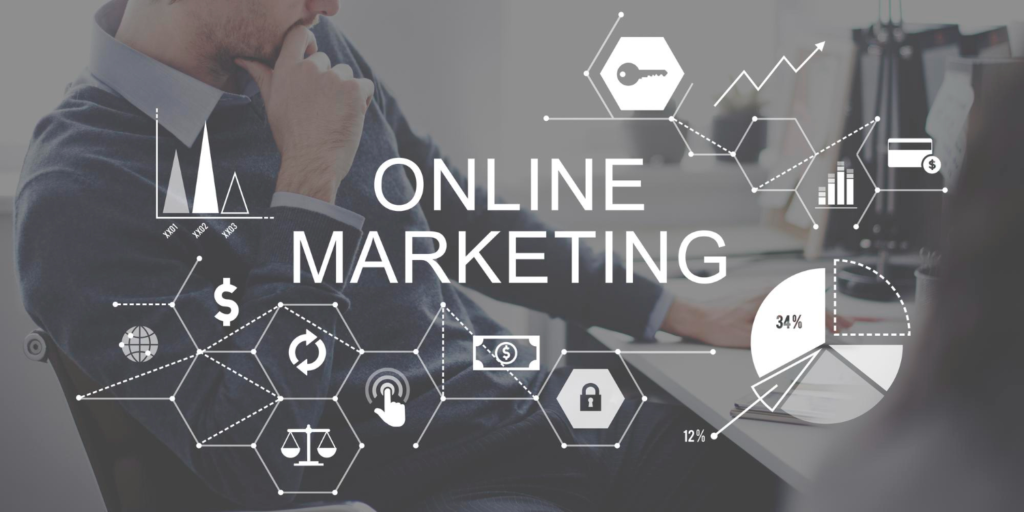
Creating a successful digital marketing strategy involves several steps:
- Define Your Goals: Determine what you want to achieve with your digital marketing efforts, whether it’s increasing brand awareness, driving website traffic, or generating leads.
- Know Your Audience: Understand your target audience’s demographics, interests, and online behavior to tailor your messaging and tactics effectively.
- Choose the Right Channels: Select the digital marketing channels that align with your goals and audience preferences. Focus on channels where your target audience is most active.
- Create Compelling Content: Develop high-quality, engaging content that provides value to your audience and encourages interaction and sharing.
- Optimize for Search Engines: Implement SEO best practices to improve your website’s visibility in search engine results and attract organic traffic.
- Track and Measure Results: Monitor the performance of your digital marketing campaigns using analytics tools and adjust your strategy based on data insights.
- Iterate and Improve: Continuously refine your digital marketing strategy based on what works best for your audience and goals, testing different approaches and optimizing for better results.
Digital Marketing Creates Growth
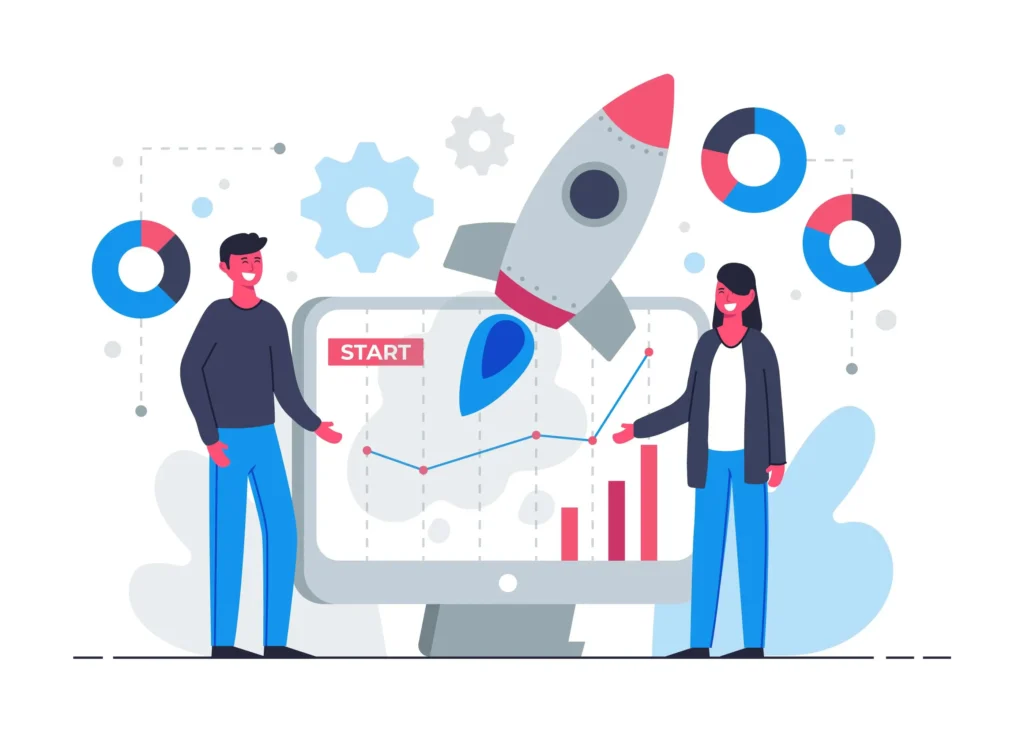
Digital marketing serves as a catalyst for business growth in the modern era, offering unparalleled opportunities to expand reach, drive engagement, and increase revenue.
Let’s explore the multifaceted ways in which digital marketing fuels growth:
- Global Reach: One of the most significant advantages of digital marketing is its ability to reach a global audience. Unlike traditional marketing methods that are often limited by geographical boundaries, digital marketing allows businesses to connect with potential customers worldwide. By leveraging digital channels such as websites, social media, and search engines, businesses can expand their reach beyond local markets and tap into new territories, driving growth opportunities on a global scale.
- Cost-Effective Strategies: Digital marketing offers cost-effective strategies for promoting products and services compared to traditional marketing channels. With digital tactics such as social media marketing, email marketing, and content creation, businesses can achieve widespread visibility and engagement at a fraction of the cost of traditional advertising methods. This affordability makes digital marketing accessible to businesses of all sizes, including startups and small enterprises, leveling the playing field and enabling growth opportunities for businesses with limited resources.
- Targeted Advertising: Digital marketing enables precise targeting and segmentation of audiences based on demographics, interests, behavior, and other relevant criteria. By tailoring marketing messages and content to specific audience segments, businesses can increase the relevance and effectiveness of their campaigns, driving higher engagement and conversion rates. Targeted advertising allows businesses to reach the right people with the right message at the right time, maximizing the impact of their marketing efforts and driving growth in key market segments.
- Data-Driven Insights: Digital marketing provides robust analytics tools and metrics for tracking and measuring campaign performance in real-time. From website traffic and conversion rates to customer engagement and ROI, businesses can access a wealth of data insights to evaluate the effectiveness of their marketing efforts and make data-driven decisions to optimize future campaigns. By leveraging data analytics, businesses can identify areas for improvement, refine their strategies, and allocate resources more effectively, driving continuous growth and improvement over time.
- Customer Engagement and Loyalty: Digital marketing fosters meaningful interactions and relationships with customers, driving engagement and loyalty over the long term. Through personalized communication, targeted offers, and value-added content, businesses can connect with customers on a deeper level, building trust and brand affinity. Engaged and loyal customers are more likely to advocate for the brand, make repeat purchases, and contribute to long-term growth through positive word-of-mouth referrals and recommendations.
- Innovation and Adaptability: In the fast-paced digital landscape, businesses must stay agile and innovative to remain competitive. Digital marketing provides the flexibility to experiment with new strategies, tactics, and technologies, allowing businesses to adapt quickly to changing market conditions, consumer preferences, and emerging trends. By embracing innovation and experimentation, businesses can stay ahead of the curve, differentiate themselves from competitors, and seize new growth opportunities in dynamic market environments.
- Scalability and Expansion: Digital marketing offers scalability and flexibility to accommodate business growth and expansion initiatives. Whether scaling up to reach new markets, launching new product lines, or expanding brand presence across digital channels, businesses can leverage digital marketing strategies to support their growth objectives. Digital marketing provides scalable solutions that can grow and evolve alongside the business, accommodating changing needs and priorities as the business expands into new territories or verticals.
In summary, digital marketing serves as a powerful engine for driving business growth in the digital age. By leveraging its global reach, cost-effective strategies, targeted advertising, data-driven insights, customer engagement, innovation, scalability, and adaptability, businesses can unlock new growth opportunities, expand their reach, and achieve sustainable success in today’s competitive marketplace.





